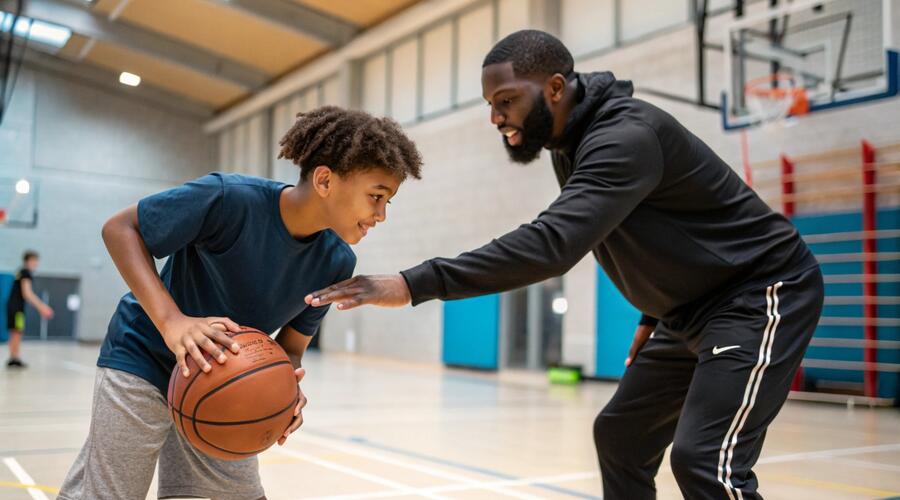The Role of Personal Coaching in a Young Player’s Development

Basketball requires not only raw talent but also structured training and continuous improvement. While team practices provide a solid foundation, personal coaching helps refine skills, build confidence, and create a tailored approach that maximizes a player's potential. As Michael Jordan once said, “Talent wins games, but teamwork and intelligence win championships.” (NBA). This article explores how personal coaching shapes young athletes and why it matters.
The Importance of Personal Coaching
1. Individual Attention
In a team setting, a coach must divide their time among many players, making it difficult to provide specific guidance to each athlete. Personal coaching allows for focused, one-on-one training sessions tailored to the player’s needs. According to the International Basketball Federation (FIBA), “A personalized approach in training leads to faster improvement and better performance on the court.”
2. Skill Development
While team drills are beneficial, personal coaching provides deeper training in specific areas. A coach can design drills to improve shooting mechanics, ball-handling, footwork, and defensive techniques based on the player’s style and position. This structured training allows a player to progress faster than they would in a regular team setting.
3. Confidence Building
Young athletes often struggle with self-confidence, especially when competing at a higher level. A personal coach offers encouragement, constructive feedback, and guidance to help players overcome self-doubt. Kobe Bryant once stated, “The most important thing is to try and inspire people so that they can be great in whatever they want to do.” (ESPN).
4. Game Strategies
Basketball requires not only physical ability but also strategic thinking. A personal coach helps young players understand game situations, improve court awareness, and develop customized strategies suited to their strengths. Learning how to read defenses, anticipate plays, and make quick decisions makes players more effective during games.
5. Building a Strong Work Ethic
A personal coach instills discipline and a consistent work ethic. One-on-one training sessions encourage accountability, pushing athletes to stay committed to their routines. These lessons in dedication and perseverance extend beyond basketball, helping players in other areas of life.
Choosing the Right Personal Coach
Experience and Knowledge
A good personal coach should have a strong background in basketball, either as a former player or a certified coach. Their understanding of the game should cover not only skills training but also game tactics, conditioning, and mental preparation.
Coaching Style
Every player responds differently to coaching methods. Some need strict discipline, while others require a more supportive approach. Finding a coach whose style aligns with the player’s personality ensures productive training sessions.
Track Record
Looking at a coach’s previous trainees and their success stories can provide insight into their effectiveness. A reputable coach should have a history of helping players improve in tangible ways.
Passion and Communication
A great coach is not just knowledgeable but also passionate about developing young athletes. Their ability to communicate clearly, motivate players, and build trust is crucial for effective training.
Significant Role
Personal coaching plays a significant role in developing a young player’s basketball career. From enhancing skill development to boosting confidence and instilling a strong work ethic, one-on-one training offers advantages that team practices cannot always provide. As NBA coaches often emphasize, “Basketball is not just about physical ability but also about mental strength and strategic thinking.” For any aspiring player looking to grow, working with a personal coach can be a game-changer.
Related Articles:

How the Four Factors Revolutionize Basketball Strategy
Implementing the Four Factors in Coaching


